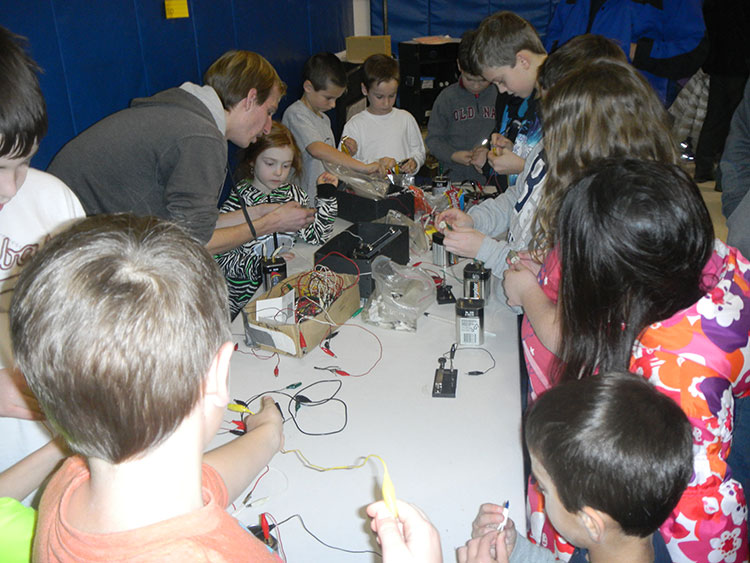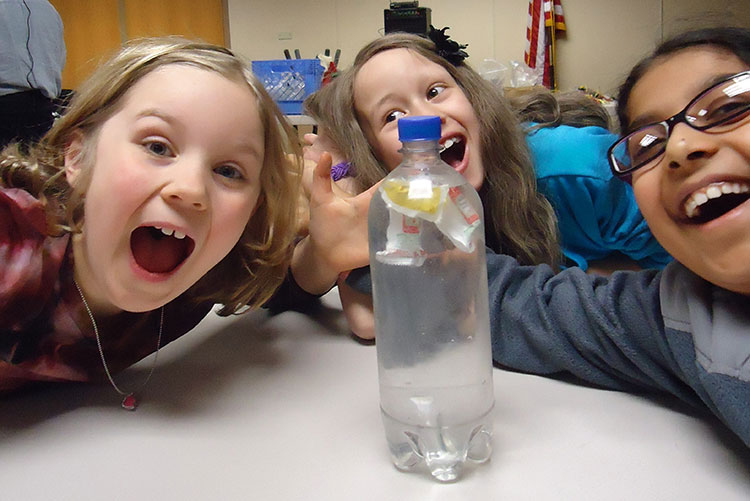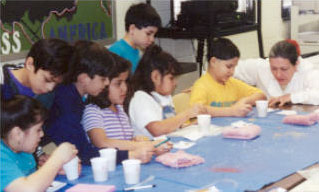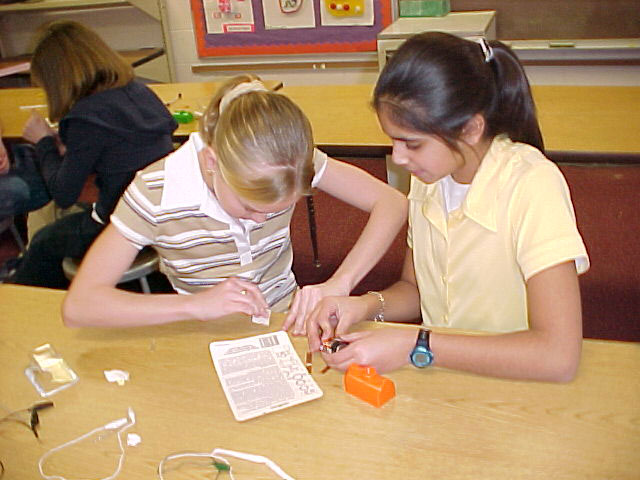The Getting Excited About Science workshops are hands on science for children, students, schools and teachers. These are perfect for STEM, meet Next Generation Science Standards and are Fun.
There are 2 ways for workshops.
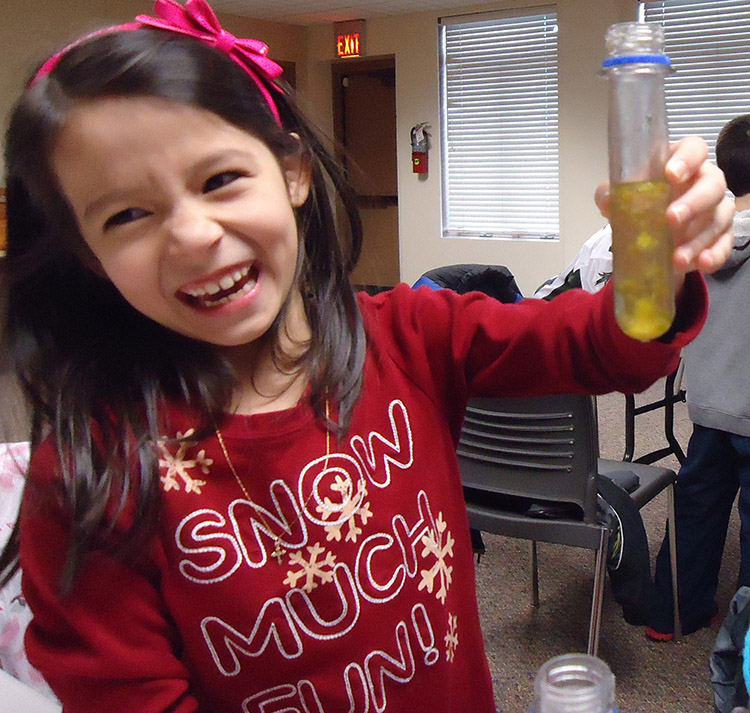
Classroom style: Where up to 50 students do the same experiments at same time. Each workshop has several experiments geared to the ages of the students and topic. These workshops can be Chemistry based or Physics based. These workshops are designed to be fun and follow Next Generation Science Standards. Every student does every experiment hands on.
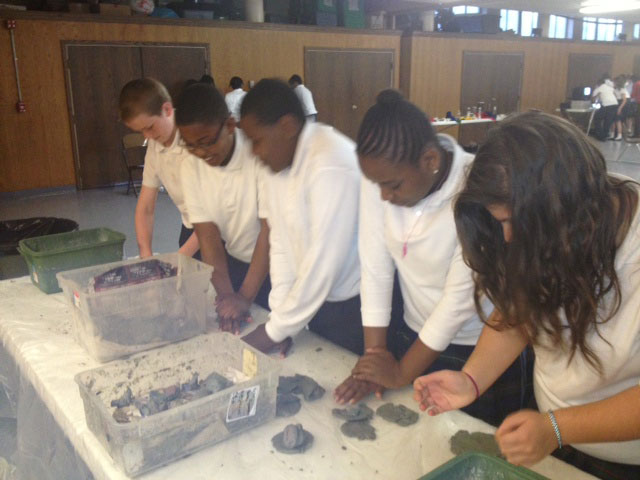
Rotation style workshops: Students work in teams and explore 10 science stations with experiments. The stations will be set up along the walls of a large room in a big open space in the middle. When the teams switch each team will go to the next station in a clock wise fashion. Each PTA helper or teacher will be asked to supervise 1 – 2 stations. The stations will have directions and posters. Each team will be given a “RECORDING RESULTS FORM”. Each team should come prepared with one pencil or pen.
The stations will be changed throughout the day to best match the grade level of students participating. Rotation workshops are perfect for a science night, allowing students and siblings to engage with science discovery.
Examples of Rotation workshop experiments:
The following is a sample of stations with recommended grade levels. Many other stations are available.
Grades K-1:
Color Mixing – Spinning Color Wheel
Light & Optics
Penny Drop
Roto Copters
Symmetry Drawing
Static Electricity
Racing Cans & Wheels
Iron Filings & Magnets
Mineral and Fossil Sorting
Clay boats
Slime
Grades 2-3:
Electric Circuits
Electromagnets
Make a Compass
Light & Optics
Mineral & Fossil Sorting
Static Electricity
Racing Cans & Wheels
Iron Filings & Magnets
Clay Boats
Roto Copter
Sound Vibrations
Making Rubber Balls
Grades 4-6:
Potential – Kinetic Energy Track
Newton’s 2nd Law of Motion – Shooting Ball
Ballistics Car
Stethoscopes – Heart – Pulse Points
Acid – Base Test
Electric Circuits
Electric Motors and Generators
Mineral & Fossil Sorting
Clay Boats
Electro Magnets
Making Flubber

